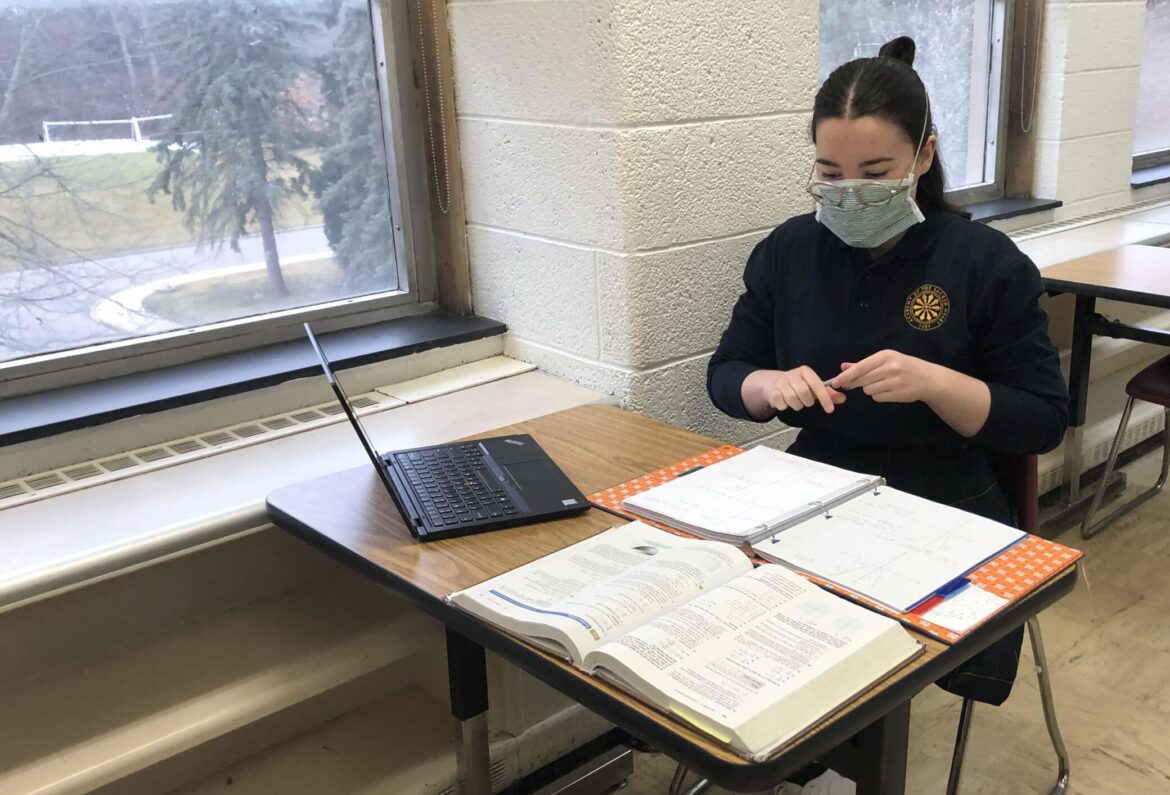Remote learning meant to protect students and slow the spread of COVID-19 has spurred another condition: burnout. Online class formats and the widespread cancellation of extracurriculars are hurting students’ desire for school.
Classes are still in session, but students do not believe they are learning with the same quality they did face-to-face. Some say it is difficult to engage enough to fully comprehend the material.
Joslyn Kaiser, a senior at Gabriel Richard High School, attributes the problem to a lack of focus.
“I do struggle especially because I’m in my own home and I’m mostly likely still in my pajamas,” she said. “So, it’s pretty much like I roll out of bed and join a class. I’m not really participating. I’m just there for the attendance.”
Alexa Camilleri, also a senior at Gabriel Richard High School in Riverview, said she has been making decent grades, but they do not reflect what she has learned.
“I did the best I have ever done last quarter because everything was online, so everyone was cheating,” she said. “It’s good on your grades but when you’re not actually learning, it doesn’t help you at all. I feel like I didn’t comprehend anything I did.”
Riley Megyesi, a sophomore at Walled Lake Western High School, has had a similar experience.
“It’s easier to get by without actually learning a lot,” he said. “I have decent grades and I still don’t feel like I have learned a lot this year.”
High schools across the state have adopted a range of online and hybrid class models, and some are reported to be more effective than others.
“Switching between online and in-person is a whole different environment,” said Kaiser. “It’s quite exhausting.”
Rebecca Fite, a senior at Academy of the Sacred Heart in Bloomfield Hills, has experienced all formats: online, in-person, and a combination of the two. In contrast to Kaiser, she said the hybrid model was the most challenging.
“As far as the quality of education, I think when we’re all remote it goes well,” she said. “But when there are students who are remote and some in person, the students who are in the class are typically forgotten.”
The cancellations of special events and extracurriculars are affecting students’ motivation, too. Seniors are missing out on final sports seasons, proms, and graduation ceremonies that they anticipated for years.
“I have felt burnt out,” said Kaiser. “I think it’s mainly because I don’t have anything to look forward to that a normal senior would with prom and graduation. We didn’t really get any of that.”
For Fite, it is not just about missing out on the fun or exciting activities.
“Every Thursday, I used to go to school for students with disabilities,” said Fite. “That was a really important part of my day because service in general is important to me, and kind of what I want to do in my future.”
Some students feel that their challenges are not being heard or appreciated by teachers.
“It’s kind of hard to keep up because teachers assume that we’re home and have nothing to do,” said Kaiser. “I personally have a job, I play softball … it’s hard to balance everything.”
When school administrators do address these issues, some students are left frustrated by their responses.
“I think it was kind of hard for young people especially because the one thing you hear from administration is how to be resilient and sometimes you just give him a sick of hearing that,” said Fite. “I think whenever [administration] wants change to happen, they’re going to have to involve student voices in that somehow because [students] know what’s best for them, because they’re experts in what they need for education. And I feel like they’re not talked to enough.”
